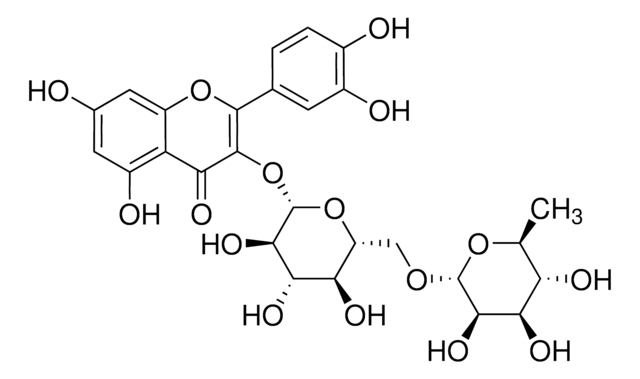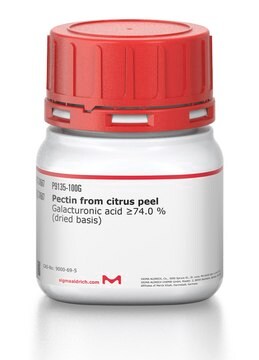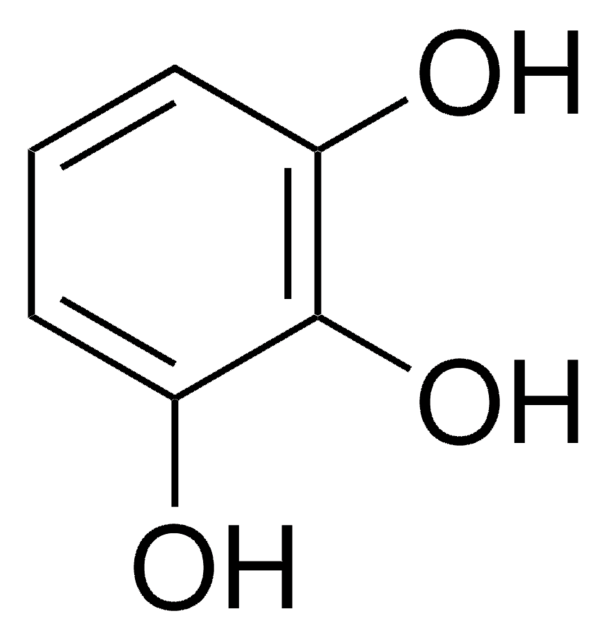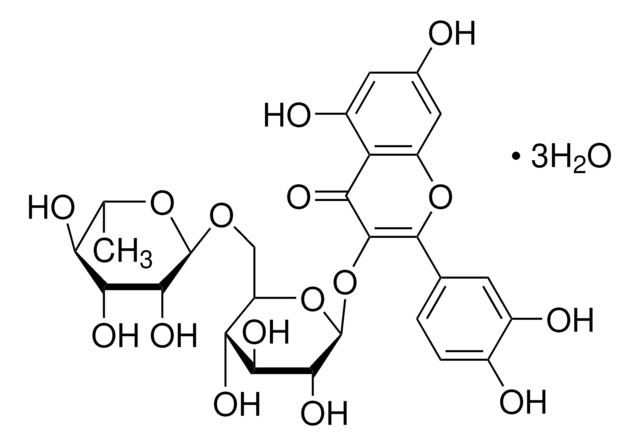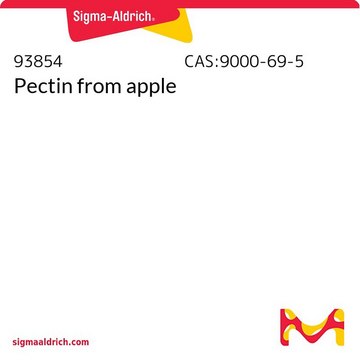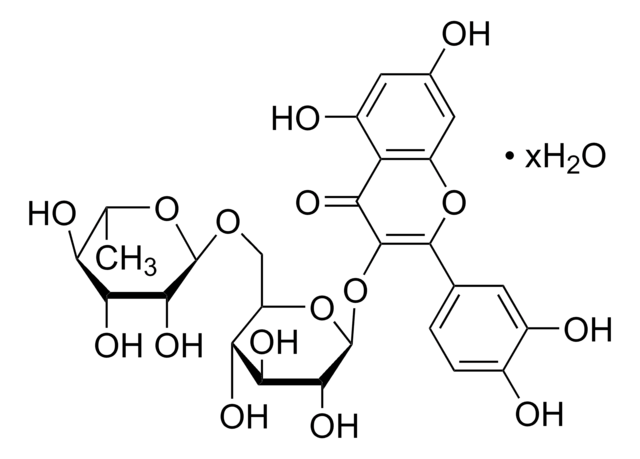Wichtige Dokumente
V900014
Pyrogallol
Vetec™, reagent grade
Synonym(e):
1,2,3-Trihydroxybenzen, 2,3-Dihydroxyphenol, Pyrogalussäure
About This Item
Empfohlene Produkte
Qualität
reagent grade
Dampfdichte
4.4 (vs air)
Dampfdruck
10 mmHg ( 167.7 °C)
Produktlinie
Vetec™
Form
solid
bp
309 °C (lit.)
mp (Schmelzpunkt)
133-134 °C (lit.)
SMILES String
Oc1cccc(O)c1O
InChI
1S/C6H6O3/c7-4-2-1-3-5(8)6(4)9/h1-3,7-9H
InChIKey
WQGWDDDVZFFDIG-UHFFFAOYSA-N
Suchen Sie nach ähnlichen Produkten? Aufrufen Leitfaden zum Produktvergleich
Rechtliche Hinweise
Signalwort
Warning
H-Sätze
Gefahreneinstufungen
Acute Tox. 4 Dermal - Acute Tox. 4 Inhalation - Acute Tox. 4 Oral - Aquatic Chronic 3 - Muta. 2
Lagerklassenschlüssel
11 - Combustible Solids
WGK
WGK 2
Flammpunkt (°F)
Not applicable
Flammpunkt (°C)
Not applicable
Hier finden Sie alle aktuellen Versionen:
Besitzen Sie dieses Produkt bereits?
In der Dokumentenbibliothek finden Sie die Dokumentation zu den Produkten, die Sie kürzlich erworben haben.
Unser Team von Wissenschaftlern verfügt über Erfahrung in allen Forschungsbereichen einschließlich Life Science, Materialwissenschaften, chemischer Synthese, Chromatographie, Analytik und vielen mehr..
Setzen Sie sich mit dem technischen Dienst in Verbindung.